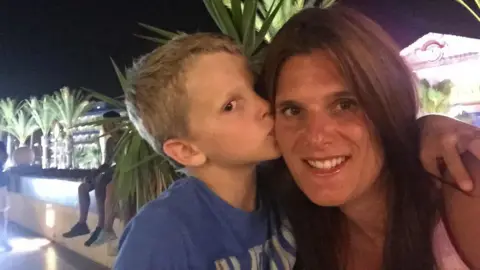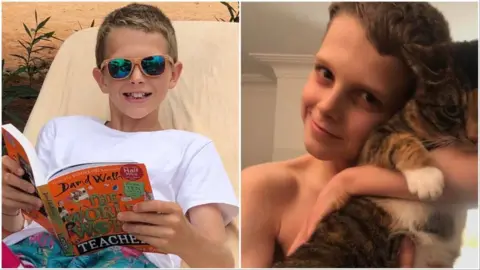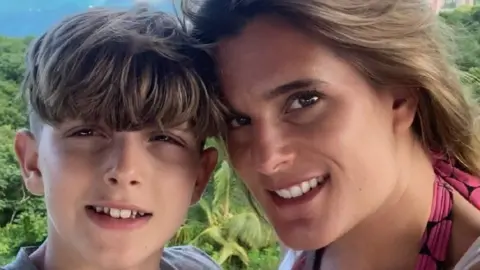Data protection bill 'not enough' - bereaved mum
 Ellen Roome
Ellen RoomeA bereaved mother has said a new bill giving coroners access to children's social media accounts does not go far enough.
The Digital Information and Smart Data Bill, part of the King's Speech this week, will enable coroners to access online information when investigating the death of a child, if they believe social media played a role in their death.
"It is really helpful, but it is still only providing the data to the coroner," said Ellen Roome, who does not know what led to her 14-year-old son Jools' death two years ago.
She believes social media companies should give parents direct access to their children's accounts if they die.
 Ellen Roome
Ellen Roome"I can only get Julian's data by going to the High Court to have his inquest redone so that coroner can demand information which then will go to the coroner," she told BBC Breakfast.
Ms Roome, from Cheltenham, found her son unconscious in his room in April 2022 and believes he may have taken part in an online challenge that went wrong, but cannot access his data to find out.
The new bill will not impact cases where a child's data has already been deleted because under current privacy laws companies are not allowed to store personal data indefinitely.
At the inquest into Jools' death, the coroner delivered a narrative verdict, adding it was unlikely he intended to take his own life but the exact events leading up to his death were unclear.
"Afterwards, I thought, this isn't right," said Ms Roome.
"We haven't even looked at social media."
But she could not get into his phone and did not know any of his passwords.
"I contacted TikTok and asked them to reset the password so I could get in. They refused," she explained.
 Ellen Roome
Ellen RoomeMs Roome did eventually get access to Jools' phone as his best friend guessed the passcode.
But she said: "The police forensics system was down so the detective had to look at it manually at the time."
A spokesperson for Gloucestershire Constabulary said: "We cannot fathom how upsetting it must be for the family to not have answers."
They explained Jools’ phone was given to police "and a review of the contents took place, as well as the manual review of a TikTok account".
“Nothing was found as part of these searches to provide any answers," the force added.
'It's a minefield'
Ms Roome said that at a meeting with TikTok she was told they could not release the information and may have deleted some of it.
"Instagram have released some data, but not all of it. So, it's just a minefield," she said.
"He took his own life and I do not know why.
"That's really hard to just be told you're supposed to accept that and not understand why your child is no longer here.
"I will never give up because it could make a difference to other parents."
The police spokesperson added: “Police are limited in what lines of enquiry can be taken to access private social media accounts hosted by private companies due to legislation, which states that you have to be proving or disproving an indictable offence."
It is understood a senior member of TikTok's trust and safety team spoke with Ms Roome in May to explain the company no longer has watch or search history for Jools as the law requires it to delete user's personal data unless it is needed for running a business.
The company said there can be exceptions to this, for example, if it had received a valid request from law enforcement, but said it did not hear from the police regarding Jools until this year.
Follow BBC Gloucestershire on Facebook, X and Instagram. Send your story ideas to us on email or via WhatsApp on 0800 313 4630.
